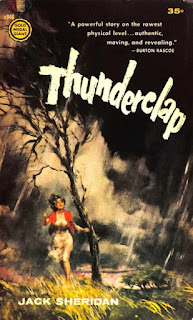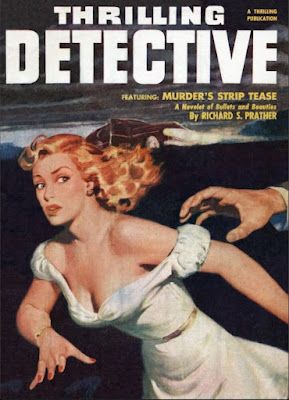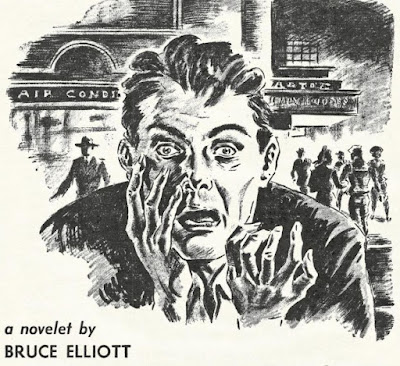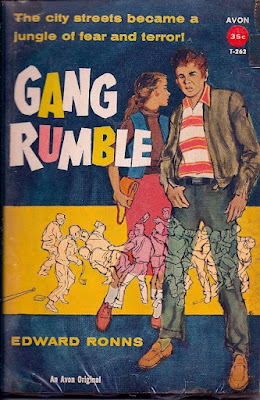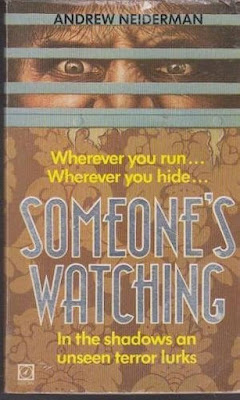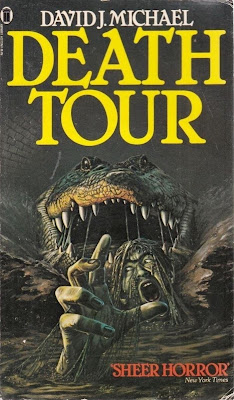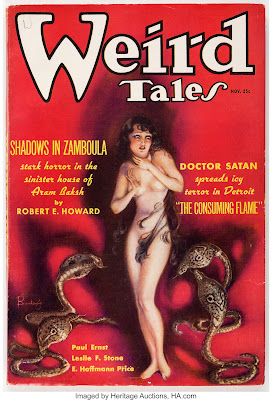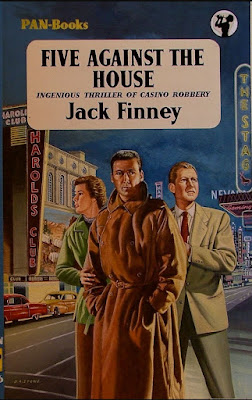The main character is a nomadic laborer named Britt Callum who can never hold down a job because he inevitably gets in a fight and clobbers the other guy a bit too hard. After a one-punch knockout in an Oklahoma bunkhouse, the human giant is back on the road hitchhiking and looking for a place to land.
He settles in rural Wichita Falls, Texas where he encounters a short ex-boxer named Rigger who appears to be the town’s drunken bully. Early in the novel, there’s a vivid fistfight scene showcasing the author’s capacity to be a damn fine action writer. For his part, Rigger is a powderkeg of hot-tempered, little-man violence and every scene awaits his next eruption.
One thing leads to another, and Big Britt finds himself working for Little Rigger and living at his wheat farm. As soon as Britt arrives at Rigger’s dilapidated acreage, he meets Rigger’s wife, Marcy. And as soon as the author describes her round, firm breasts, you know exactly where this story is headed.
Rigger has a brother named Newt who also lives on the farm. As bad and dangerous as Rigger is, Newt is ten-times more dangerous and conniving. Newt is the first to notice the vibes between Britt and Marcy, and the minefield of Britt’s current existence is underscored.
In 1951, Thunderclap was a commercial success selling over 500,000 copies and multiple printings with two cover variations. The people of Wichita Falls didn’t care for the way their town was portrayed as a redneck shithole populated by dusty bar-fighters, but such is fiction, right?
This is a novel with a great beginning and a gruesome conclusion, but a plodding middle. The “will they, won’t they” dilemma between Britt and Marcy occupied nearly the entirety of the book to the extent that I was left thinking that Harry Whittington or Gil Brewer would have just killed off the bastard Rigger much sooner setting up the novel’s tension.
Thunderclap is also a rather depressing novel, like a blues song or murder ballad set to prose. These are some hard-luck characters scraping by with a meager existence. The upside is that Sheridan is a very good writer, and I never considered walking away from the book because I needed to know what would become of these four tragic characters.
As long as you know what you’re getting (i.e. not a crime noir, more of a rural melodrama), you’ll probably like Thunderclap just fine. The Texas setting is vivid, the characters are well-drawn, and the writing is solid. It’s not a masterpiece by any means, but a compelling timepiece certainly worth your time.
Buy a copy of this book HERE.


